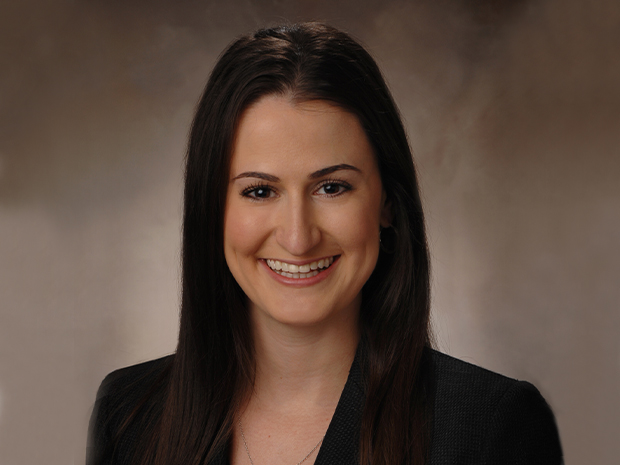Carried interest presents a unique opportunity for gift and estate planning purposes.
Key takeaways
When considering carried interest for gift and estate planning, effective valuation is critical.
A qualified advisor is key for valuing carried interest as a part of gift and estate planning.
Carried interest, often referred to as “carry,” is a share of the profits of an investment or investment fund that is paid to the general partner. This performance-based fee is designed to motivate the manager to optimize the fund’s performance. It aligns the manager’s interests with those of the investors, as the manager’s compensation increases in conjunction with the fund’s performance.
Why consider carried interest for gifting?
Carried interest presents a unique opportunity for gift and estate planning purposes. It typically has a relatively low fair value at the start of the fund, but it holds very high upside potential in the future. This makes it an advantageous asset for gifting, allowing for significant wealth transfer opportunities. By gifting carried interest, one can leverage the asset’s initial low valuation for tax efficiency while potentially transferring a much higher value to the recipient as the fund appreciates in the future.
Considering your options
When considering carried interest for gift and estate planning purposes, an effective valuation is critical. Because carried interest can have many different structures and strategies, the experience of the valuation advisor you work with matters. A qualified valuation advisor should have experience in several areas, including:
Methodology options
The numerous options to value carried interest range from the discounted cash flow model to more complex approaches like a Monte Carlo simulation model. Model selection is influenced by several factors, but primarily by the current stage of the fund’s life cycle. An advisor should have experience with all models associated with carried interest valuation and possess the knowledge to determine and implement the appropriate model.
Differing structures
An advisor should be well-versed in both American and European structures, with extensive experience with technical intricacies within distribution structures. For instance, the limited partners may have differing carry percentages or alternative distribution structures.
Additionally, distribution waterfalls often have return hurdles with performance triggers affecting the carry distributions. Further, American-style allocations typically have clawback provisions, but may also have fair value or payout tests structured to mitigate future clawbacks. Each scenario is unique to the subject fund and has an impact on the cash flows to the carried interest—and therefore, must be considered and incorporated within the valuation model.
Underlying investment types
An advisor’s experience should span various investment types, including real estate, debt, equity, co-investment and secondaries. Although the distribution structure remains unaffected by the type of investment, the return characteristics and risk profile of each investment type do vary. Breadth and depth of experience enables your advisor to effectively evaluate and integrate these risk and return profiles into the analysis.
Strategies
An advisor should have exposure to various fund strategies, including credit opportunity funds, growth funds, recycled investments and continuation vehicles. If you are considering a derivative strategy, seek an advisor with extensive experience with derivative structures containing hurdles, sharing percentages, caps, etc., to gain a comprehensive understanding of your options. Derivatives are often used as a strategic tool within tax planning to isolate gifting strategies specific to future carried interest cash flows, rather than the holistic “vertical slice.”
Applicable discounts
Discounts for lack of marketability and control can be considered when gifting carried interest positions. Applying these discounts is inherently subjective and requires substantial analyst judgment. Your advisor should have the experience and knowledge to assess the appropriateness of these discounts, integrating professional insights with market data and published studies to determine the appropriate discount rate.
A customized approach
A qualified advisor should consider unique aspects related to each subject fund—for example, global investment strategy, waived management fees and their potential impact on value within the vertical slice, and more.
Working with a qualified advisor like RSM can facilitate an effective valuation of carried interest, derivatives of carried interest or the vertical slice for U.S. participants in U.S. or international funds in connection with gift and estate planning or federal tax reporting. The right firm can seamlessly integrate engagement processes with your existing advisors, including tax attorneys and tax consultants, to provide holistic advice surrounding potential transactions, while maintaining discretion when dealing with multiple stakeholders involved in carried interest, especially when it comes to scaling such deliverables.
From a tax perspective, your valuation advisor should have the ability to utilize the most defensible model for valuations, designed to withstand scrutiny from the IRS. For example, RSM’s valuation services team has the depth of understanding and insight to leverage the correct model for the stage of your fund.
The takeaway
A qualified advisor with extensive knowledge and wide-ranging experience is a reliable and critical resource for valuing carried interest as a part of your gift and estate planning strategy. Prior to working with an advisor, it’s important to ensure they have the right knowledge and capacity to deliver the best solutions tailored to your specific needs, ensuring a seamless and efficient process.
RSM contributors
-

-
 Rachel HooverDirector
Rachel HooverDirector

